Master clinical practice with effective supervision notes strategies
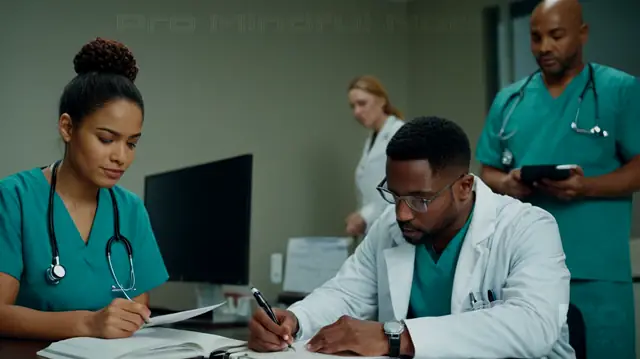
In this article, we will be exploring the importance and benefits of supervision notes in enhancing clinical practice for psychotherapists. Specifically, we will delve into the significance of thorough documentation in the supervisory relationship between therapists and their supervisors, highlighting how effective supervisor notes, also known as supervisory notes, can facilitate ongoing learning and growth, promote personal growth and self-awareness, and support ethical practice. We will also examine various strategies for writing supervision note that can be employed to maximize the benefits of this essential tool in professional development.
Effective supervision notes are more than just a recording of what happened during supervision sessions – they serve as a catalyst for growth, self-reflection, and improvement. By capturing key takeaways from discussions with supervisors, therapists can identify areas for personal and professional development, refine their clinical skills, and cultivate greater self-awareness. Moreover, well-documented supervision notes can help therapists stay organized, keep track of progress, and provide valuable insights for future supervision sessions or peer consultations.
- The importance of thorough documentation in supervision
- Benefits of effective supervision notes
- Strategies for capturing the essence of the supervision process
- The multifaceted role of supervision in professional development and self-awareness
- Effective note-taking techniques for supervisors
- Organizing and storing supervision notes effectively
- Using technology to streamline note-taking processes
- Conclusion
- Video about Master clinical practice with effective supervision notes strategies
The importance of thorough documentation in supervision
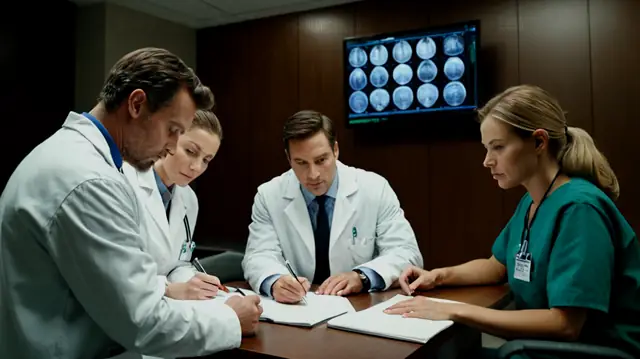
Thorough and accurate supervision notes are an essential component of the supervisory relationship, providing a comprehensive record of the supervision process. As a supervisor, it is crucial to maintain a systematic approach to documenting supervisor notes, which not only facilitates ongoing learning and growth but also supports therapists in their clinical practice. In this article, we will explore the significance of supervisory notes in enhancing clinical practice and provide effective strategies for capturing the essence of supervision.
By maintaining detailed supervision note, supervisors can track the progress of therapists, identify areas requiring attention, and develop targeted interventions to address specific challenges. This not only enhances therapist development but also ensures that therapy sessions are grounded in evidence-based practices. Moreover, thorough documentation of supervisory notes enables supervisors to reflect on their own practice, acknowledging successes and learning from mistakes, which is essential for professional growth and well-being. Furthermore, having a comprehensive record of the supervision process provides valuable insight into the therapist-supervisor relationship, allowing for adjustments and improvements as needed.
Effective documentation of supervision note also plays a critical role in maintaining ethical practice. By keeping an accurate account of the supervision process, supervisors can demonstrate their commitment to accountability, transparency, and professionalism. Furthermore, thorough documentation allows therapists to track their progress over time, providing valuable feedback for ongoing improvement and personal growth. Maintaining detailed and accurate supervision notes is essential for enhancing clinical practice, promoting therapist development, and ensuring ethical practice.
Benefits of effective supervision notes
Effective supervision notes are a powerful tool for enhancing clinical practice and promoting professional growth. By taking thoughtful and detailed supervisor notes, therapists can reflect on their experiences, identify areas for improvement, and develop strategies for addressing common challenges. This process not only improves the quality of care delivered but also supports therapist well-being by providing a safe space to process difficult cases and emotions.
Moreover, supervision notes serve as a valuable resource for ongoing learning and professional development. By reviewing and reflecting on past sessions, therapists can identify patterns, gain insights into their own biases and assumptions, and refine their clinical skills. This reflective practice also facilitates the integration of new knowledge and techniques, enabling therapists to stay up-to-date with best practices in the field. In addition, supervisory notes can provide a sense of accountability and responsibility, as therapists are encouraged to regularly review and revise their approaches.
Effective supervision note-taking can also have a positive impact on therapeutic relationships. By carefully documenting sessions and identifying areas for improvement, therapists can ensure that they are providing the highest level of care possible. This attention to detail demonstrates a commitment to excellence and respect for clients, ultimately leading to more effective and satisfying therapeutic outcomes. Moreover, supervision notes can serve as a valuable reference point for future sessions, enabling therapists to build on past successes and avoid repetitive mistakes.
Strategies for capturing the essence of the supervision process

Effective supervision notes are essential for a supervisor to document the key takeaways, insights, and recommendations from each session. A thoughtful approach to supervisor notes, which is a collaborative effort between the supervisor and supervisee, helps to identify areas for improvement, track progress, and develop personalized strategies for growth. In essence, well-crafted supervisory notes facilitate ongoing learning, personal growth, and professional development.
To capture the essence of the supervision process, it's essential to adopt a structured approach to documenting sessions. This can be achieved by creating a template that includes key elements such as: * A summary of the supervisee's clinical practice * Noted areas for improvement or concern * Recommendations for further learning or skill-building * Reflections on the supervisee's strengths and areas for development * Any agreements or action items established during the session. By incorporating these essential components, supervision note templates become a valuable tool for supervisors to track progress, identify patterns, and tailor their guidance accordingly.
Another effective strategy for capturing the essence of the supervision process is to focus on specific themes or goals that emerge from each session. This might involve identifying key learning objectives, developing strategies for addressing specific challenges, or exploring areas where the supervisee requires additional support or guidance. By concentrating on these supervision notes, supervisors can distill complex information into actionable takeaways that inform future sessions and foster meaningful growth.
The multifaceted role of supervision in professional development and self-awareness
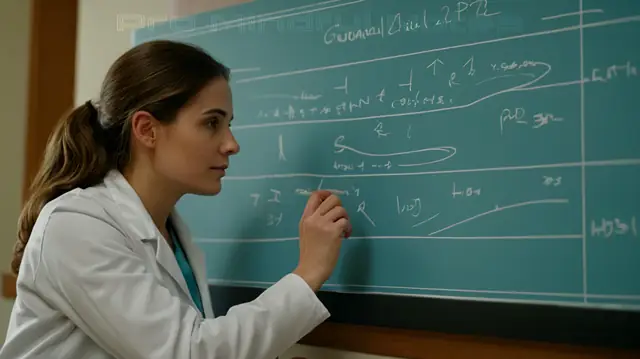
Effective supervision plays a vital role in the personal and professional growth of psychotherapists, facilitating ongoing learning and refinement of clinical skills. Supervision notes serve as a critical tool for capturing insights, reflections, and insights from the supervisory process, enabling therapists to integrate new knowledge and strategies into their practice. As therapists engage with their supervisor notes, they cultivate self-awareness, gaining valuable perspectives on their own thought patterns, emotions, and reactions. This heightened self-awareness empowers therapists to develop a more nuanced understanding of themselves and their role in the therapeutic relationship.
The supervisory process also fosters supervision note-based reflection, encouraging therapists to examine their values, beliefs, and biases that may influence their clinical practice. By exploring these aspects of themselves through supervisory notes, therapists can identify areas for growth, challenge their assumptions, and refine their therapeutic approach. Moreover, the supervisory relationship provides a safe space for therapists to explore and process challenging cases, thereby promoting resilience, well-being, and ethical practice.
As psychotherapists develop and refine their skills, supervision notes serve as a testament to their growth and progress. By maintaining thorough and reflective supervision records, therapists demonstrate a commitment to ongoing learning and self-improvement, ultimately enhancing the quality of their clinical practice and the care they provide to clients.
Effective note-taking techniques for supervisors
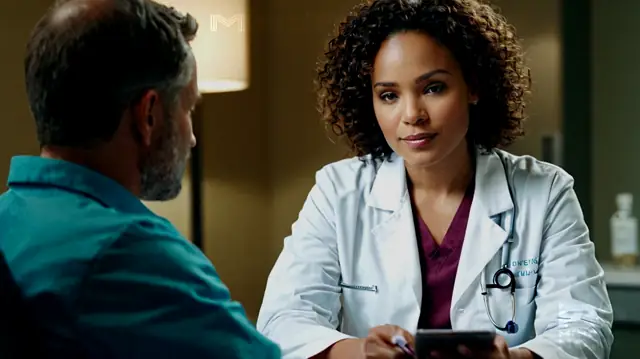
To create valuable supervision notes, supervisors must employ effective note-taking strategies that capture the essence of the supervision process. A key approach is to focus on supervision notes that are concise, yet detailed enough to convey the main points discussed during the session. This requires supervisors to actively listen and engage with their supervisees, taking note of crucial insights, questions, and concerns raised throughout the conversation.
When taking supervisor notes, it's essential to prioritize clarity and organization. A structured approach can be achieved by using a template or framework that includes key sections such as "Focus Areas," "Key Issues," and "Action Steps." This helps supervisors to efficiently capture relevant information and create a comprehensive record of the supervision discussion.
By adopting these supervisory notes techniques, supervisors can ensure that their note-taking process is both thorough and efficient. This not only benefits the supervisee but also allows the supervisor to reflect on their own practice, identify areas for improvement, and develop strategies for future supervisions. By maintaining a well-organized set of supervision notes, supervisors can maintain continuity across sessions, fostering a culture of ongoing learning and growth.
Organizing and storing supervision notes effectively
Effective storage of supervision notes is crucial for both therapists and supervisors to maintain a comprehensive record of the supervisory process. A well-organized system ensures that important information can be easily accessed and reviewed, facilitating ongoing learning and growth. One effective approach is to use a dedicated binder or folder for each therapist's files, where all supervisor notes, including initial intake forms, treatment plans, and progress updates, are kept together.
In addition to physical storage, digital platforms like cloud-based storage services (e.g., Google Drive, Dropbox) or electronic health records (EHRs) can also be used to store and organize supervisory notes. This allows for easy sharing of information between therapists and supervisors, as well as access from any location with an internet connection. It is essential to establish clear protocols for accessing and editing digital files to ensure confidentiality and security.
For both physical and digital storage systems, consider implementing a standardized format for recording supervision notes. This can include using a template or checklist to guide note-taking, ensuring that all relevant information is captured consistently. By organizing and storing supervision notes effectively, therapists and supervisors can maintain a comprehensive record of the supervisory process, facilitating ongoing learning, growth, and quality improvement.
Using technology to streamline note-taking processes
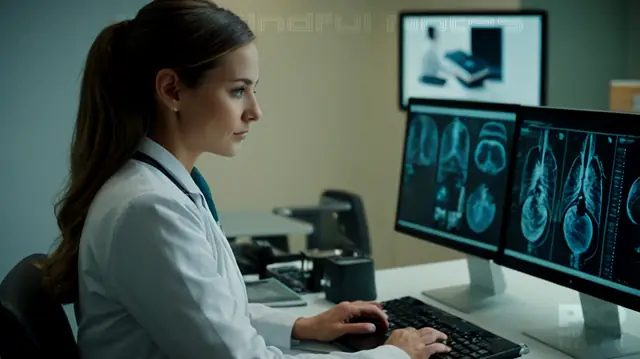
In today's digital age, leveraging technology can significantly enhance the supervision process and simplify the task of creating supervision notes. With a plethora of note-taking tools and apps available, supervisors can now focus on the quality of their supervisor notes, rather than expending energy on tedious documentation. For instance, cloud-based note-taking platforms allow for seamless collaboration, easy sharing of information, and automatic backup, ensuring that valuable insights and observations are never lost.
Moreover, digital tools enable supervisors to organize and categorize their supervisory notes in a more efficient manner, making it easier to locate specific topics or themes. This can be particularly useful when reviewing progress over time or conducting research for future training sessions. Furthermore, the use of audio or video recordings can facilitate the creation of supervision note, allowing supervisors to focus on capturing the essence of a session rather than attempting to transcribe every detail.
By integrating technology into their practice, supervisors can enjoy increased productivity, improved accuracy, and enhanced flexibility in their supervisory notes. As the supervision process becomes more streamlined, therapists can benefit from receiving well-organized and easily accessible feedback that helps them grow professionally and improve their clinical practice.
Conclusion
Effective supervision notes are an indispensable tool for therapists seeking to master their clinical practice. By incorporating these strategies into your supervisory notes, you will not only enhance your own professional development but also provide a valuable resource for future supervisors and trainees. Remember that thorough documentation is key to capturing the essence of the supervision process, and by doing so, you will be able to supervision note important insights, themes, and areas for growth.
As you reflect on your own clinical practice, consider how incorporating these strategies into your supervisor notes can help you better serve your clients. By regularly reviewing and updating your supervision notes, you will be able to identify trends, patterns, and areas of strength, enabling you to refine your therapeutic approach and continually improve the quality of care you provide.
Ultimately, the art of effective supervision lies in striking a balance between supporting the therapist's growth while also promoting client well-being. By leveraging supervision notes as a tool for ongoing learning, personal growth, and ethical practice, therapists can master their clinical practice, foster healthy professional relationships, and ultimately deliver high-quality care that honors the complexities of the human experience.
Video about Master clinical practice with effective supervision notes strategies
Leave a Reply


Related Posts